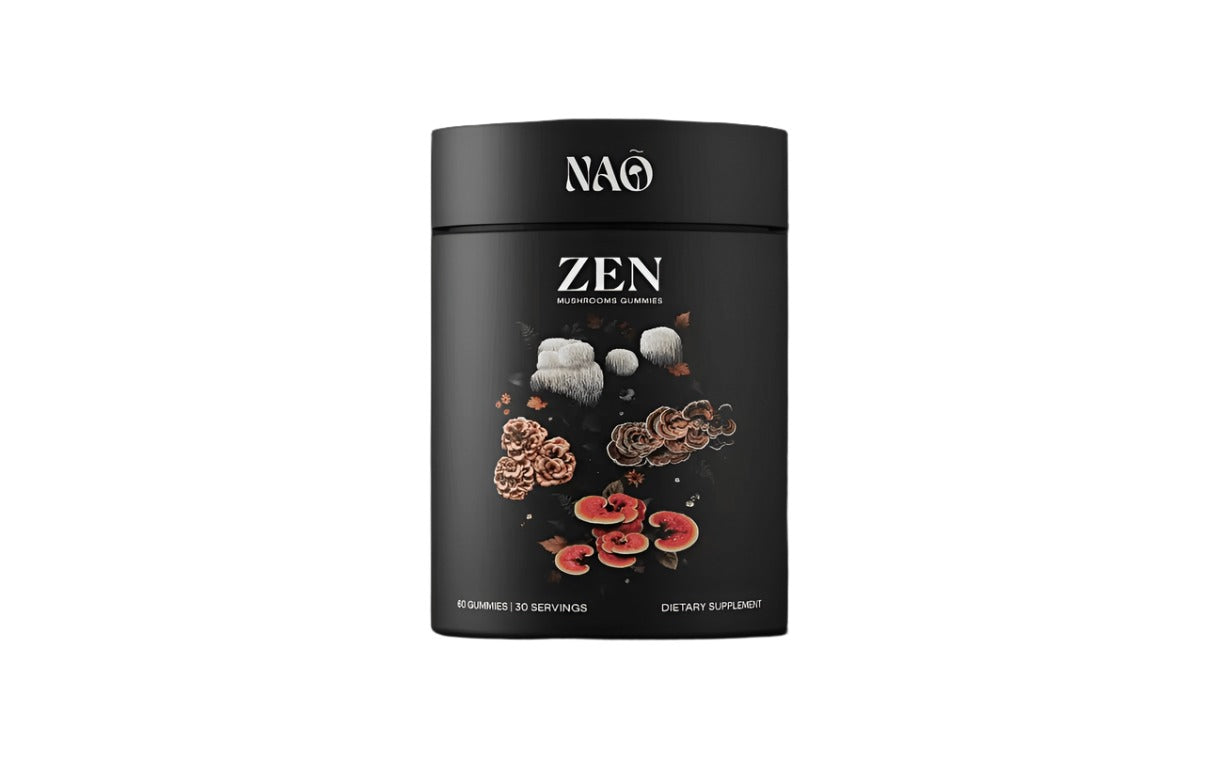Over the years, Ashwagandha has become one of the most popular supplements for stress, energy, and overall health. But the million-dollar question is: How soon does this adaptogen start to work? The timeline could change depending on your dosage and health goals. Studies show that a reduction in stress is noted within a fortnight by many, while other developed benefits related to sleep and concentration may take up to eight weeks to fully kick in.
Knowing what to expect about the timeline of its results helps you set realistic expectations. Other factors involve age, health status, and consistency in usage, which generally dictate how soon you will begin feeling the effects of this adaptogen. Wondering when you might actually start to feel the effects? Let’s break down exactly what to expect and how to maximize supplements with Ashwagandha benefits!
What Is Ashwagandha and How Does It Work?
Ashwagandha, scientifically referred to as Withania somnifera, is a powerful adaptogenic herb used for thousands of years in Ayurvedic medicine. Primarily, the supplement of ashwagandha owes its value to the bioactive compounds inside the plant known as withanolides, responsible for many of the therapeutic benefits it claims. But how does it work?
Adaptogen and Stress Response
Ashwagandha is believed to be an adaptogen because it helps the human body cope better with stress. If administered regularly, it reduces stress and anxiety by normalizing cortisol levels, considered to be the major stress hormone produced by the adrenal glands. High cortisol usually relates to chronic stress, fatigue, and mood dysregulation. Thus, ashwagandha operates in favor of the balance of cortisol while helping to keep a person in a relaxed state with emotional stability.

Effects on Neurotransmitters
Ashwagandha acts upon neurotransmitters in the brain, serotonin and GABA being two critical factors for the regulation of mood and sleep. Because of its anxiolytic effects, ashwagandha aids in soothing symptoms of anxiety and stress by its action upon neurotransmitter balance, hence being quite effective in both anxiety and insomnia. Regular supplementation contributes to mental well-being, creating a calm, balanced condition of the mind.
Effects are generally realized anywhere from 2 to 6 weeks following the commencement of the ashwagandha supplement, depending on the kind of effect desired and at what dosage. A daily dosage of 300-600 mg of ashwagandha is a common recommendation for most users who look to see noticeable benefits. Outcomes may vary from person to person, and thus it calls for persistence and eventual adjustment of dosages to get the right outcome for reduction in anxiety and improvement of sleep.
Factors That Affect How Long Ashwagandha Takes to Work
The multiple factors at play can make an ashwagandha supplement either hit the ball out of the park or never leave the tee. Knowing what those are is going to help you to best leverage this potent herb. So, exactly how long does it take for ashwagandha to actually work? We would break down the details by key factors below.
Dosage and Form
The type and dosage of the ashwagandha supplement that you choose could go a long way in determining how fast you notice results. Ashwagandha extracts come in so many different forms: standardized extracts, powders, and tinctures.
Standardized extracts are much stronger because of the withanolide content, the active constituent that accounts for most of the benefits. If you want faster results, then you may go ahead with standardized extracts, ranging between 300-600 mg per day, taken daily. Powders and tinctures work too, but you may have to take a higher dose for longer use.
Remember, the closer to a higher withanolide content the product is, the faster the results will be. A high-quality ashwagandha supplement at a range of 5-10% withanolide will make that process faster, aiding in the reduction of stress and anxiety within 2-4 weeks.
Individual Body Chemistry
Individual body chemistry, rate of metabolism, balance of hormones, gut health, and other constitutional factors all play an important role, which means that the time it takes for ashwagandha to kick in will vary. Some people might notice changes after a couple of weeks of treatment, such as sleeping better or feeling their stress levels decrease, while others may take up to eight weeks before actual noticeable changes appear.
You may achieve success in a short period of time if your metabolism is great, or if your cortisol levels are at bay. On the contrary, people whose problems were caused either by hormonal or digestive issues may take their time to feel the action of this supplement. Here, patience plays a great role-a healthy diet and a healthy lifestyle complement and enhance the potential outcomes of ashwagandha taken every day.
Consistency and Duration of Use
Adaptogenic herbs, including ashwagandha, work better when taken over a period with consistency. On and off use can extend or minimize the results, and it may be hard to feel the full impact of it. The effectiveness of ashwagandha is best when taken daily for no less than 4-6 weeks. This way, the herb will have plenty of time to build up in your system and exercise its full effect: reducing stress, anxiety, and improving sleep.
For this reason, making a daily routine-making use of capsules, powders, or ashwagandha extracts-will make sure you obtain the maximum benefit out of it. Remember, taking your ashwagandha supplement at the same time daily may further help its adaptogenic properties.
Typical Timeline for Ashwagandha Benefits
So, how long does ashwagandha take to work? The timeline for when ashwagandha starts working varies for every individual; it again depends on how consistently the herb has been used. By understanding what one can expect at each stage, one will be able to have realistic expectations and enhance your wellness journey.

Immediate Effects
A few users reported slight changes within a few hours to days following the intake of ashwagandha extracts. These immediate effects are generally light and may include a feeling of calm or minor energy boost. Not everyone will experience these changes in the beginning, since they may be more pronounced in those subjects who might be more sensitive to adaptogens.
The immediate effect often includes a minor decrease in the level of anxiety, though one should not be concerned in case the feelings do not manifest right away. The real power of ashwagandha is derived from the various effects it has on a person over time.
Short-Term Benefits (1-2 Weeks)
Within 1-2 weeks of constant intake, many people start observing a difference. It is during this period that the herb really starts to take effect: stress and anxiety lower themselves as cortisol levels even out. Better quality sleep can also be achieved with the intake of 300-600 mg of ashwagandha over time. You may begin to find your energy levels balancing out and mood evening out. During this stage, it is crucial to keep up the daily routine so that it can build up to the full adaptogenic benefit.
Long-Term Benefits (4+ Weeks)
Continued use over more than 4 weeks is recommended for the full range of benefits. The long-term effects of this include a significant reduction in anxiety, enhanced focus, and increased physical stamina. One could notice more hormonal balance, especially in people that have to deal with chronic stress. Neurologic improvements include better concentration of the mind and clarity. Normally, the full potential of an ashwagandha supplement is realized after 6-8 weeks of use.
Okay, but seriously, how long does ashwagandha take to work in the long run? Though some may notice results a little sooner, it takes about 4-8 weeks, actually. Consistency with your daily intake will see you enjoy the powerful adaptogenic benefits of the herb to the fullest.
When to Consider Adjusting Your Ashwagandha Intake
If you keep on asking yourself, “how long does ashwagandha take to work?” and you are yet to see any results, then it is time for a change of dose or form for your ashwagandha supplement. This is because people begin to show different responses due to their body chemistry, the dosage taken, and the forms taken in ashwagandha extracts.

When to Increase Your Dosage
If you have been taking 300-600 mg of ashwagandha consistently for 4-6 weeks and notice only minimal improvements, consider gradually increasing the dosage. Signs that you may need to increase your intake include still feeling high levels of stress, anxiety, or seeing little improvement in sleep quality. Since adaptogens build up in the body over time, a slight increase in your ashwagandha daily dosage could help enhance its ability to reduce stress and anxiety and promote improved sleep.
When to Decrease Your Dosage
If you have been taking 300-600 mg of ashwagandha for 4-6 weeks consistently and see very slight improvements, one may gradually go up. The signs that you may need to increase your intake include still feeling high levels of stress, anxiety, or seeing little improvement in sleep quality. Since adaptogenic herbs like ashwagandha tend to build up in the body over time, a slight increase in dosage can help improve its pharmacology by acting to reduce stress and anxiety and help improve sleep quality.
Consider Switching Forms
If adjusting dosage is not working for you, you may try switching from powder to capsules or tinctures for better bioavailability. Capsules are easier on the stomach and provide a more standardized dose. People who are sensitive to digestion may find ashwagandha tinctures or ashwagandha extracts easier to take, with gentleness that does not sacrifice any benefit against stress and anxiety for the sake of improved sleep.
How long does ashwagandha take to kick in? That would depend on your personal response and correct dosage adjustment. Fine-tuning of the intake gets you one step closer to optimizing your ashwagandha supplement for maximum well-being.
So, how long does it take for ashwagandha to kick in? That depends on a lot of variables: dosage, body chemistry, and consistency of use play their part. With any luck, the supplement will have subtle effects within a few days, while the full benefits may take up to 6-8 weeks in some cases. But anyway, taking ashwagandha daily is very important in case someone wants to get optimal results.
In such a way, one needs to exercise great patience and take consistency in the process, whether one wants to alleviate stress and anxiety, sleep better, or even improve one’s well-being in general. Observe your body's reaction, and do not be afraid to make an adjustment of dosage or to change forms if necessary. With the right approach, ashwagandha has all possibilities for turning into your long-term helper for health and balance.
Get ready to watch the magic of how this adaptogen will change your well-being. Start today, be regular, and let nature's remedy work its magic!













